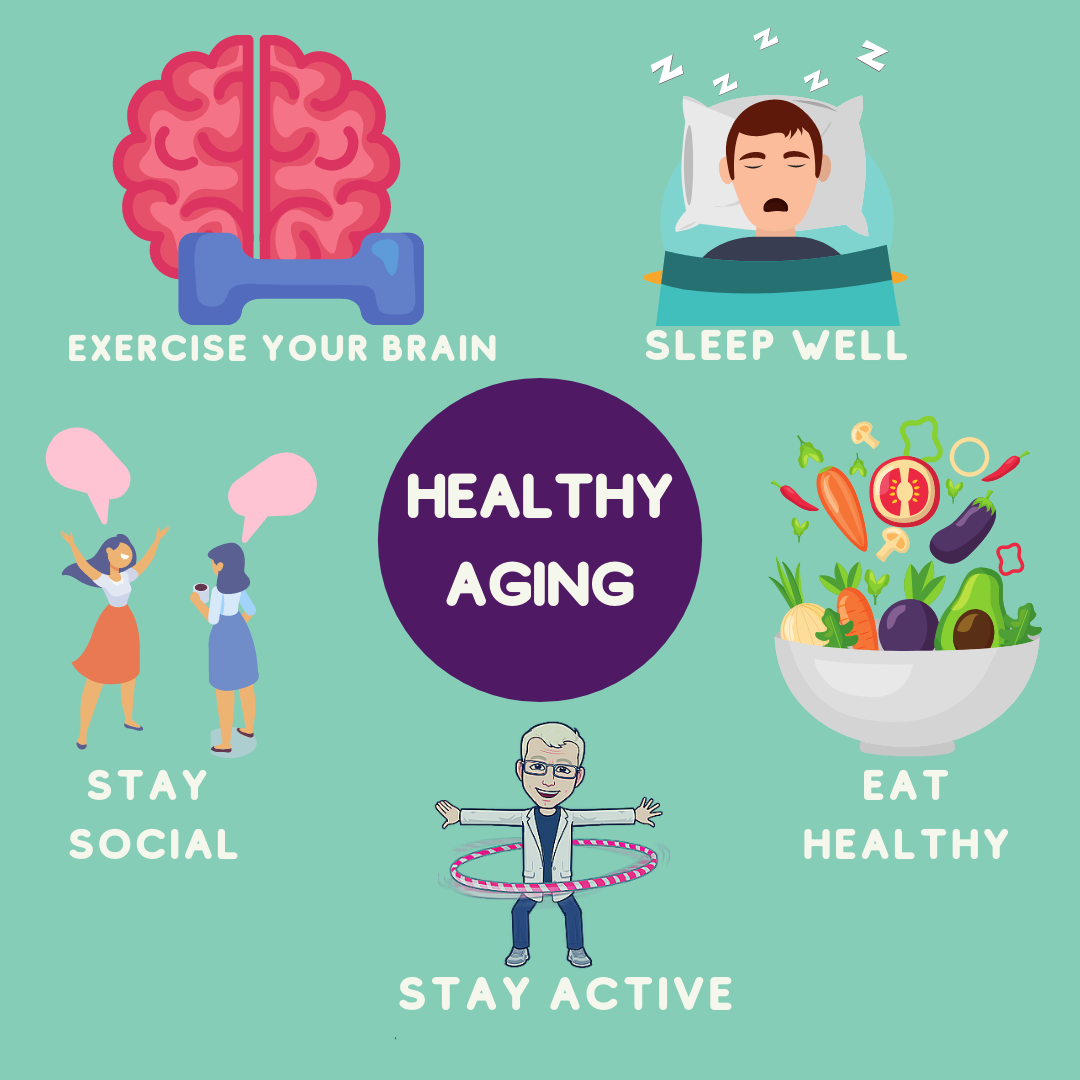
What Is Healthy Aging?
Share
While our bodies and minds change as we age, it doesn’t mean we have to give up on having a happy, healthy, active life. When thinking about aging well, what's the first thing that comes to mind? According to the World Health Organization, healthy aging is "the process of developing and maintaining the functional ability that enables well-being in older age."
Healthy aging is about creating the environments and opportunities that enable people to be and do what they value throughout their lives. Everybody can experience healthy aging. Being free of disease or infirmity is not a requirement for healthy ageing, as many older adults have one or more health conditions that, when well controlled, have little influence on their wellbeing.
Aging well includes extending life, avoiding chronic disease and limiting weakness at the end of your life. This is best accomplished by focusing on four distinct but interconnected pillars: physical, social, emotional and cognitive health.
1. Physical health includes:
> Exercise and physical activity
> Good nutrition / Healthy eating
> Getting a good night’s sleep
> Quit smoking
> Go to the doctor regularly for health screenings
2. Social health includes:
> Regular social interaction with people and community
> Leisure activities and hobbies
3. Emotional health:
> Managing social isolation, loneliness, stress, depression, and mood through medical and self-care is key to healthy aging.
4. Cognitive health:
> Cognition — the ability to clearly think, learn, and remember — often changes as we age. Although some people develop Alzheimer’s or other types of dementia, many older adults experience more modest changes in memory and thinking. Research shows that healthy eating, staying active, and learning new skills may help keep older adults cognitively healthy.
When it comes to aging healthily, what are you doing well? Where could you improve? Check in with yourself using a checklist of tips like this to determine where you're doing well and where you can improve on your healthy aging journey.
Sources: Abbott, WHO, NIH
